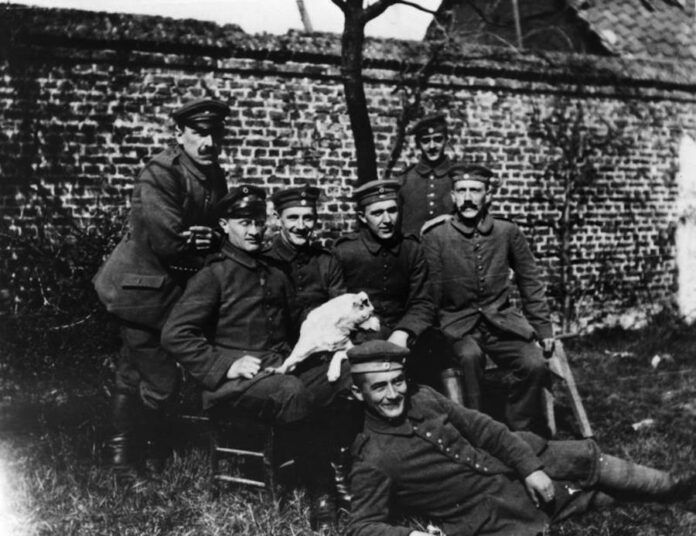![BUNDESARCHIV, BILD 146-1974-082-44 [CC-BY-SA 3.0] / CREATIVE COMMONS](https://theaggie.org/wp-content/uploads/2017/01/nationalism_op.jpg)
 An uptick in right-wing movements bodes ill across the globe
An uptick in right-wing movements bodes ill across the globe
The rise and fall of nations is inevitable — it’s a cycle that has gone on for centuries. The Middle East was the center of scientific discovery and other literary pursuits, but now its very name is considered synonymous with chaos and terrorism. Greece, one of the oldest civilizations in the world, suffers from chronic bankruptcy and a corrupt government. Empires and civilizations have risen, only to fall to outside enemies, or crumble from within. Doesn’t it seem like the cycle has started again?
The start of World War I can be attributed to nationalism fueled by political propaganda and rulers who prioritized their own interests. It was nationalism, or the tendency to view your own country as superior to the rest, and to place your country’s interests first, that significantly helped European nations develop. Most modern European countries developed around a shared national identity. But that “national identity” often had the effect of dividing a country along racial, ethnic or linguistic lines.
Sound familiar? In 2016, we witnessed two major countries cast their votes — Britain in favor of leaving the EU, and the United States for Donald J. Trump. Both events were partially caused by a dislike or mistrust of people who may have represented some kind of “other.” Brexit was caused by a resentment building among the working classes who felt that their jobs were being taken away by immigrants and who felt threatened by the large numbers of immigrants fleeing from Syria. Terrorist attacks in France and Germany only added to their fears.
The US is a melting pot of diversity, with immigrants coming from all over the world in search of a better life. Voting for Trump effectively meant voting against LGBTQ rights, against women’s rights and against immigrants. Working-class white males, whose jobs have either been rendered obsolete by technology or have been outsourced to other countries where labor and manufacturing are cheaper, sought someone to blame and were ultimately pointed to easy targets: immigrants and women moving into male-dominated professions.
After World War I, participating nations suffered serious economic and social repercussions. The League of Nations was formed to maintain peace and the losing countries, especially Germany, were penalized heavily. However, they failed to prevent leaders like Hitler and Mussolini from rising to power and paving the way to World War II. Today, we wonder how the public could have elected someone as horrible as Hitler. But the crux of the matter is that he promised jobs and wages amid economic trouble. He positioned himself as a strong alternative to the corrupt governments that had come into power after the war.
We can see history repeating itself today. The Arab Spring of 2011 was the common man’s rebellion against a dictatorship in Egypt. But the government was replaced by right-wing fundamentalists. In 2014, India voted overwhelmingly for Modi and his party — the right-wing BJP — which has close ties to Hindu nationalistic organizations. It was a bold move against the secular but corrupt Indian National Congress party which had held the office almost uninterrupted since India’s independence in 1947. The Philippines voted for Duterte, a president known for being brash, violent and very different from his predecessors. The integration of immigrants from Syria into European society has fostered widespread resentment among members of the working and middle classes there. Right-wing fundamentalist parties in Germany and Italy have grown as a result. As ISIS continues to wreak havoc in Syria, it seems that religious and right-wing radicals are increasingly taking hold of our world.
For those of us who believe in progressive mindsets and globalization, the world seems to be moving backwards. Perhaps, we will see our way through these conflicts, and when we come out on the other side, the tables may be turned for the most powerful nations. Or maybe, for the first time, we could learn from history and stand together in unity to ensure that our progressive empires don’t crumble.
Written by: Shohini Maitra — samaitra@ucdavis.edu





